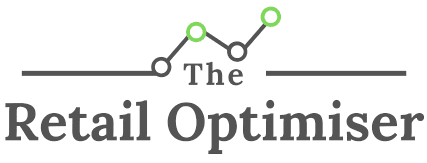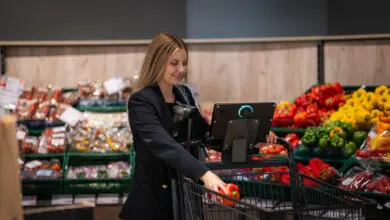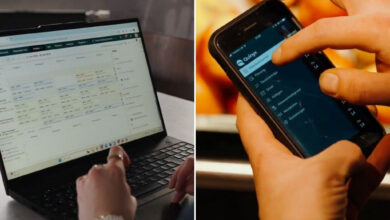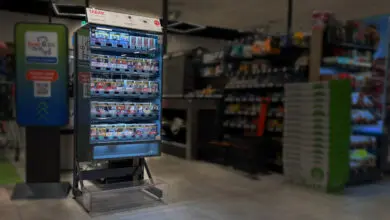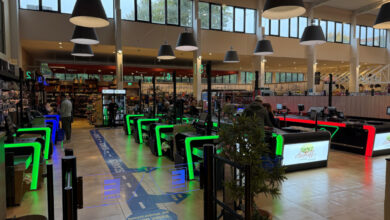Retailers want to offer digital receipts to all customers
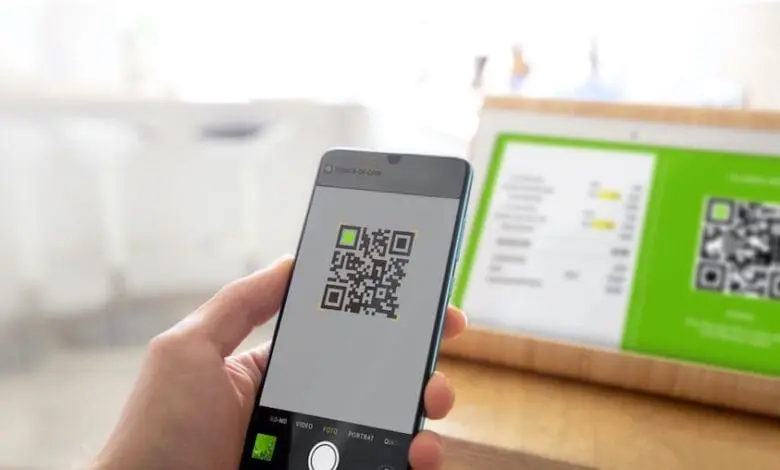
Since January 2020, retailers and restaurants in Germany have been legally obliged to issue receipts. In addition, receipts have also become significantly longer due to additional mandatory information.
This additional flood of paper is a major annoyance in the industry. Previously, many retailers had only printed receipts at customer request, thus saving considerable costs and waste.
Already in December 2019, EHI Retail Institute stated in a press release that an additional use of more than 2 million kilometres of receipt paper per year is imminent in retail alone. That is equivalent to about 12.5 million kilograms of wood.
But there is a way for retail companies to avoid this additional burden on the environment and save costs at the same time. Legislation allows the receipt to be provided in digital form. Customers can informally agree to the issuing of an electronic receipt. As soon as they have the possibility to receive the receipt electronically, the legal requirement is met.
Retailers must provide receipts in a standardised data format – such as jpg, png or pdf – as it must be possible to use them with standard software at no additional cost to the customer. The legislator does not define the way the data are transferred.
Digital receipt via customer loyalty app
Large German retail companies which have launched their own customer loyalty app have been offering an electronic receipt right from the start. And this independently of the method of payment.
Lidl has offered an electronic receipt in its highly regarded app Lidl Plus since the official German launch of the application. The Retail Optimiser reported. Independently from the ways of payment the discounter has been established that long before it also launched its Lidl Pay within the app.
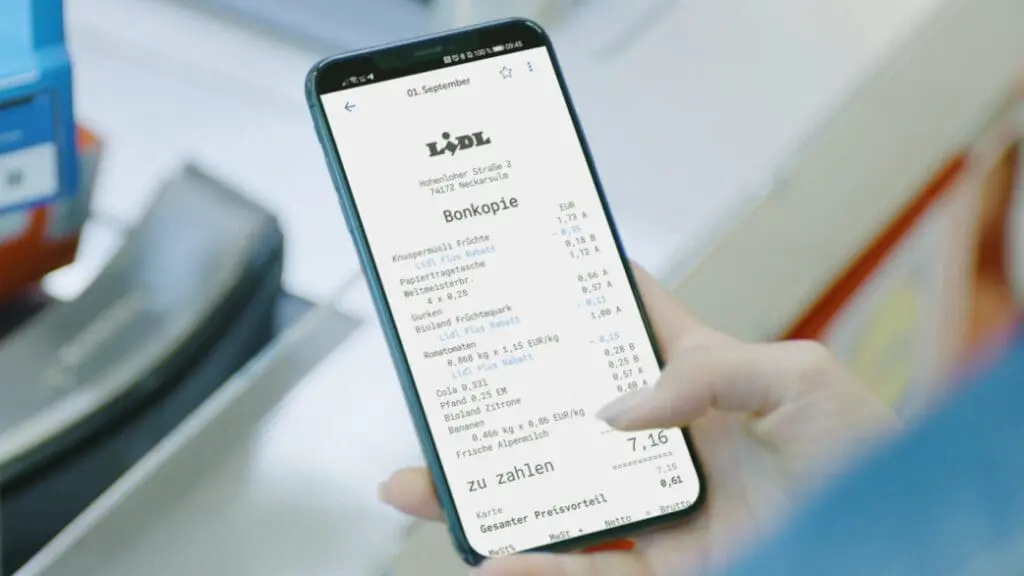
Edeka Group also offers an electronic receipt in its “Genuss Plus” app, which is intended as a group wide Edeka solution. Even though the Genuss Plus app plays a major role in the retail group: The Edeka cooperative would not be the Edeka cooperative if some regional organisations did not still operate alternative apps.
Rewe Group customers can also receive an electronic voucher – provided they participate in the customer loyalty programme. Rewe provides the service via Payback. Customers must first register there for the Rewe-eBon.
Low acceptance
An electronic archive of all one’s receipts brings considerable advantages for the customer, especially when it comes to complaints and returns. And yet, those responsible in retail are currently discussing the topic of electronic receipts heatedly. This is because the number of users of customer loyalty programmes is modest.
Retailers are therefore now looking for ways to offer the electronic receipt to all customers, including the silent majority who still want to shop anonymously in Germany.
Some large retailers are therefore currently testing the EmailBon solution developed by GK Software, store technology supplier of Lidl, Aldi Nord,Edeka Group and many others. With the solution, the electronic receipt can be received anonymously regardless of the checkout software used – even without providing an email address.
Anonymity as the key to success
The application is provided by GK Software as a cloud service for retail companies. GK Software does not offer a consumer app, but a technological solution that retail companies can integrate into their own environment. As retail groups see the issue as a competitive advantage, they are looking for solutions that they can offer to their customers under their own brand – not a cross-retailer consumer app.
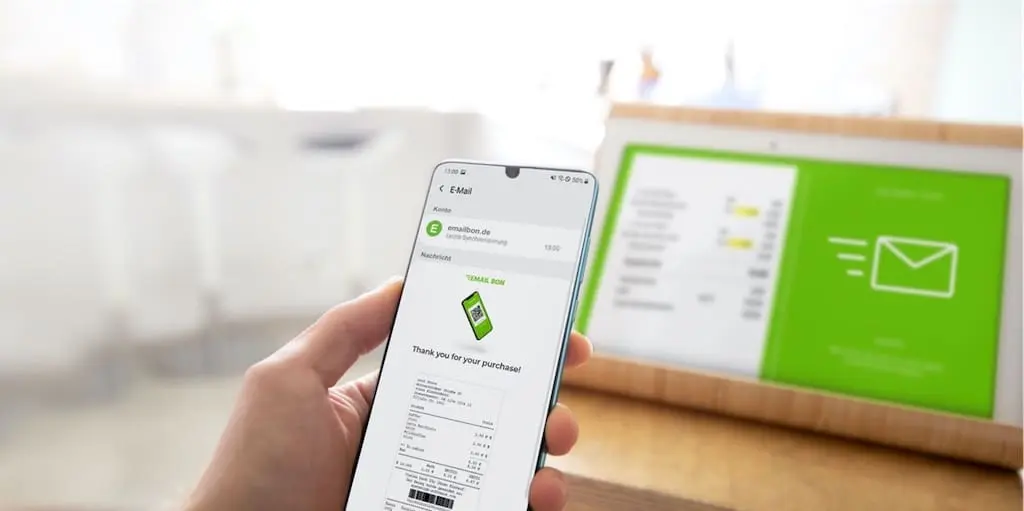
“EmailBon deliberately and consistently does not collect any data,” explains Enrico Peter, Managing Director of the GK Software subsidiary retail7. This is precisely the requirement of retail organisations: To be able to offer the electronic receipt to customers who want to shop anonymously.
Without collecting data, the EmailBon solution offers retail companies the option of issuing a digital receipt in three different ways. And two of them enable completely anonymous shopping.
Firstly, the customer display at the checkout shows a QR code, which contains the link to the receipt. Customers can scan it with their smartphone. The receipt is called up in the browser and can be saved by the customer. For local storage, GK Software offers customers their own app, which does not have to be used and only stores the receipts locally.
On the other hand, there is the option of printing out a QR code at the checkout instead of a receipt. The customer can scan this later and access the receipt via any browser.
As the name EmailBon suggests, the solution also allows the receipt to be sent via email, provided the customer is willing to disclose it. In this case, customer’s email address is recorded at the POS. This can be done manually, by scanning a QR code or by scanning a customer card. The retailer’s mail server then sends the receipts as generated by the solution. All three options can be combined so that the customer can decide at the checkout which option to use.
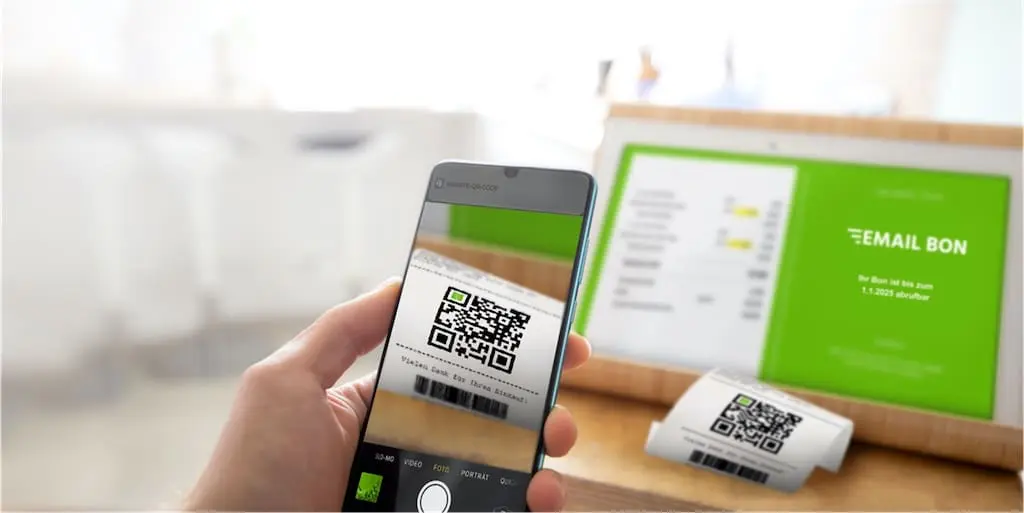
Cross-merchant apps
For consumers, however, it could also be advantageous to combine receipts from purchases at different retailers in one app. The Regensburg-based start-up Techreach, among others, is aiming at this with its app Anybill. With Anybill, customers can generate a QR code for identification and have it scanned at the checkout of participating retailers or read the receipt in the form of a QR code from the customer display.
A third variant is the linking with a means of payment, for example the bank card. In any case, the technology for this must be integrated into the POS system by the retailer. Techreach states that this can be done without additional hardware. Integration into an existing merchant app is also possible. However, the number of connected merchants is currently still very manageable.
A question of standards
There is also a discussion in the industry whether a lack of data standards could be a reason why the topic has not really taken off so far. GS1 Germany declared its willingness to accompany and support efforts towards standardisation. But as important as standards are in general, the issue is controversial.
The legislator requires the digital receipt to be issued in standard image formats or pdf. The design of the receipt is up to the retail companies within the framework of the legal requirements and does not need standardisation. And the demand from retail organisations for solutions that are also used by their competitors has so far been close to zero. Rewe Group, for example, continues to say: “Let’s do it better than the blue and yellows.” And at the Edeka Group: “Let’s do it better than the reds.”
